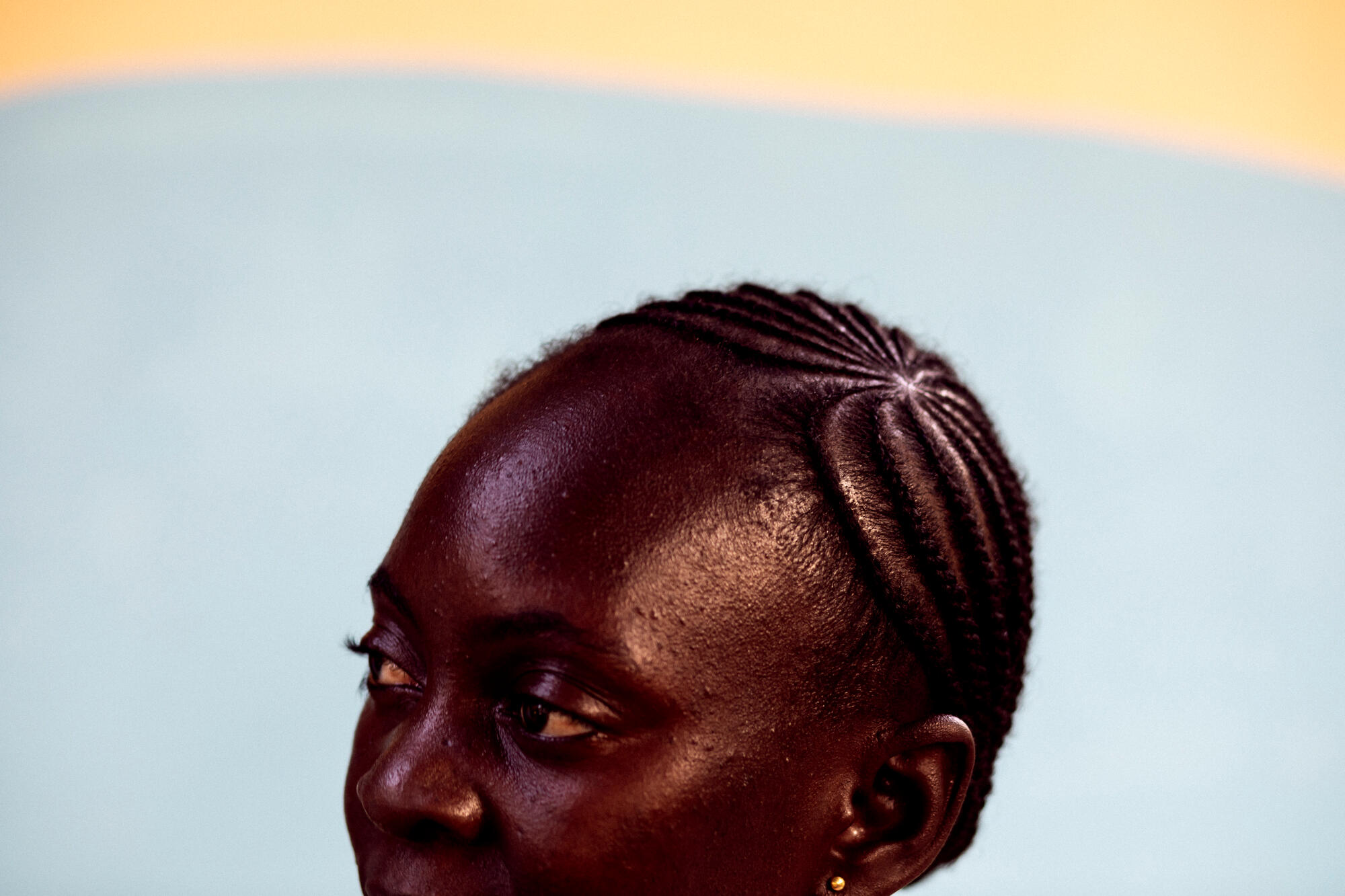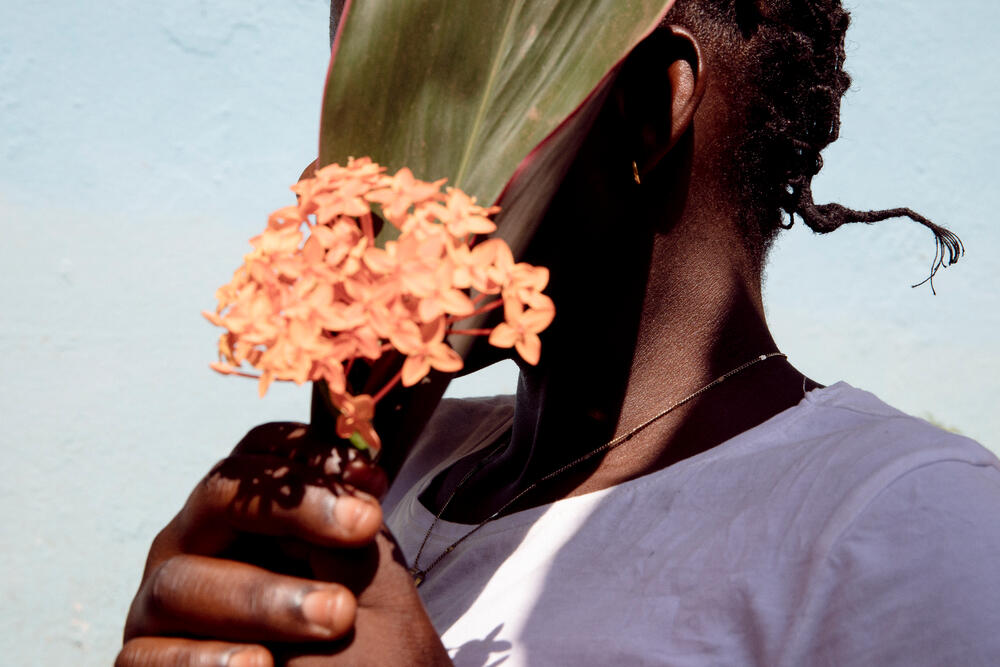CAR: Healing the visible and invisible wounds of sexual violence

“I don't know how to help this patient. It's been a few consultations already and I can't see any improvement in her emotional state. It still feels like the first day." I'm talking to one of Médecins Sans Frontières / Doctors Without Borders (MSF)'s counsellors at the Tongolo Centre.
“If she’s comfortable with it,” I say, “I’ll sit in on your session and we can analyse the situation together."
This deeply sad lady survived a sexual assault but contracted an STI from it. She worries excessively, she thinks a lot. At night, she cannot sleep because she is imprisoned by her thoughts from the past.
"I am here, all alone with my child, and I am afraid for my future."
"Madam, just waking up every morning and continuing to seek help is courageous."
"No, I don't have the courage anymore. I just think, if only … ”
The uncertainty in this lady's speech was obvious. Sometimes survivors don’t realise how much effort they are making to overcome the situation because before everything was better.
Hope and paralysis
In our session, we describe what happened as an “earthquake” because everything changed dramatically in her life after the assault. Nothing she knew before is the same and she is unwittingly looking for a way to rebuild her life.
But sometimes hope fixes on impossible expectations: that the disease will go away, that she will be able to forget what happened.
The hope she had for a few months after the traumatic event made her go backwards. In the silence of the night, in her thoughts and in her days, she lived through this hope. In her head, anything was possible. “If only…”
Yet that is preventing her from continuing to live, even though she has the strength and the ability within her. Getting stuck in your thoughts is a logical way to endure your daily tragedy. But to help her come out of this paralysis, we must activate her concrete resources in the here and now.

Help us prepare for the next emergency
"Although feeling deep sadness, she started to smile... a precious moment in all the uncertainty"

Our role is to be attentive to what she says. Everything that is said in the therapeutic space is part of an overall analysis which allows us to draw out the means for her to help herself from her own history and her own resources.
“I received a dignity kit last week. It helped me because there were plenty of hygiene supplies, clothes, and soap to bathe my baby."
"Have you already bathed your child with the soap from the kit?"
"Yes, I did. We had a great time together. My child had a good laugh, and then he was clean, and he smelled very good."
This patient told us about a moment in her day. We took the time to listen to her, to reassure her that this moment with her baby was precious, that despite everything that has happened, she still has great things to experience and share.
Although feeling deep sadness, she started to smile ... a precious moment in all the uncertainty she was going through.
Agents of resilience
Traumatic events leave a very deep psychological wound.
The first thing to do is to show the person that they are not on their own, that we will listen to them supportively, without judging them. Reassure them that we are here, that what happened to them is not their fault.
An event of this magnitude is never expected. We have not written such a thing in our life plans. That’s why we created the Tongolo project, because we know that loneliness after abuse can be even more harmful.
We want to create a safe space for people to express themselves freely, to express their anger, their sadness, their rage, their fear, their joy, their worries and their suffering, all surrounded by kindness.
The first contact after a traumatic event is essential. Indeed, this will define what vision the person will have of their story in the days that follow. The story that the person tells themselves will imprison them in this event or free them from their prison of trauma.
This is why we call the professionals who are listening to these people for the first time the “agents of resilience”.
We are mental health professionals who give people hope. We save lives, and we support our patients to find ways forward.
A different space
"I keep coming because here I can talk about everything without feeling judged, you are so empathetic with me. Here you understand me. I felt guilty for leaving my child with the neighbour just to come and talk, but talking makes me feel so good."
The work of mental health goes beyond the role of giving advice. It’s about listening to what the person expresses, what’s important for them. Here our listening is compassionate and active.
It is not easy to put aside our personal baggage and give our full attention during therapy.
Listening is not just listening. Listening for us is making connections, integrating speech and theory, mastering our body and verbal language, being with all our senses in the here and now, to allow survivors to have a different space that helps them heal themselves.
Life and strength
At the end of the consultation, I told the counsellor: "This is your work, this is the improvement for the client, she keeps coming despite her difficulties. This space for her means speaking without being judged, taking care of herself through discussions with you. Today she shared with us how she bathed her baby, she no longer spoke about her assault, she managed to regain a little of the joy of living."
In this work with survivors of sexual and gender-based violence, we must find the chinks we can slip through to help them continue to live. We know that as long as the survivors keep coming to us we can support them.
We, unfortunately, cannot change their difficult reality, but we can help them look at things in different ways. We can let them know that they are surrounded by people who care about them, and that there is life, that there is strength, that there is something beyond their trauma.
Names and identifying details have been omitted or changed.
MSF and sexual violence
Sexual and gender-based violence (SGBV) is a medical emergency.
We strive to make comprehensive healthcare available to survivors of sexual violence, regardless of their age or gender, in all of our projects.
Sexual violence shatters the lives of millions across the globe. It can occur in any society at any time but often increases in unstable situations, such as armed conflicts.
Sexual violence is complex and stigmatising, has long-lasting consequences, and can result in physical and psychological health risks.
In 2019, MSF provided medical care to 28,800 survivors of sexual violence.


